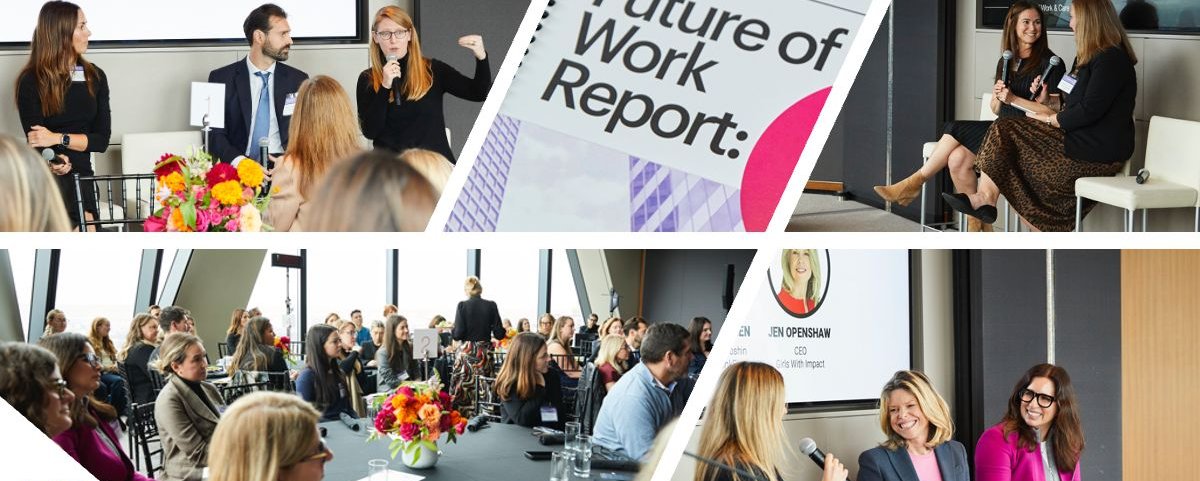Nov 10, 2025 • 2 min read
Future of Work: How Employee Benefits Are Becoming Your Greatest Sustainability Asset

The rules of workforce wellbeing are being rewritten, and sustainability is no longer just an ESG checkbox. It's becoming a core driver of talent attraction, retention, and engagement. As HR leaders navigate unprecedented challenges around burnout, flexibility, and evolving employee expectations, a new frontier is emerging: climate-positive employee benefits.
We collaborated with HearstLab to bring HR and ESG leaders a new guide: Future of Work Report: The New Rules of Workforce Wellbeing. Below we share the highlights and what you can do to meet the expectations of today's workforce.
Table of Contents
Unveiling Employee Preferences
HearstLab's inaugural Future of Work Report: The New Rules of Workforce Wellbeing reveals a striking truth: employees aren't just asking for traditional perks anymore. They're demanding that their employers take meaningful climate action, and they're making career decisions based on it.
The numbers tell a compelling story.
According to HearstLab's research, 69% of employed adults want their companies to invest in sustainability efforts. This isn't a niche concern: it's a mainstream expectation that's reshaping the employer-employee relationship.
Even more striking: 70% of job seekers now consider an employer's environmental record when evaluating a job offer. For organizations competing for top talent in a tight labor market, this statistic should be a wake-up call. Your sustainability strategy isn't separate from your talent strategy — it's integral to it.
Perhaps most telling is that half of high-income workers are willing to switch jobs for a more sustainable company. These are often your most experienced, highest-performing employees (the ones you can least afford to lose).
A Generational Shift in Workplace Values
This transformation is being driven largely by Millennials and Gen Z, who will comprise 70% of the workforce by 2029. For these generations, sustainability isn't a nice-to-have, it's a baseline expectation. They view climate action as a reflection of company values, and they're increasingly unwilling to compromise on it.
But this isn't just about younger workers. The desire for corporate climate leadership spans demographics, reflecting a broader cultural shift in how we think about work, purpose, and collective responsibility.
From Traditional Perks to Climate Benefits
Smart HR leaders are responding by fundamentally rethinking their benefits strategies. With benefits budgets under pressure and engagement with traditional perks declining, there's an opportunity to reallocate resources toward programs that deliver both environmental and business ROI.
Progressive employers are integrating sustainability directly into their total rewards packages, creating "climate benefits" that reduce employees' personal carbon footprints while strengthening recruitment, retention, and engagement outcomes. This might include subsidies for electric vehicles, support for home energy efficiency upgrades, sustainable commuting benefits, or carbon offset programs tied to employee wellness initiatives.
The Opportunity
Companies that embrace climate-positive benefits are positioning themselves to attract top talent, reduce turnover costs, and build cultures that resonate with the values of the modern workforce.
As detailed in The New Rules of Workforce Wellbeing, the most successful organizations will be those that recognize employee benefits as a powerful lever for corporate impact. By aligning benefits strategy with sustainability goals, HR leaders can transform their departments from cost centers into drivers of both environmental and business value.
The future of work isn't just about flexibility, wellness, or competitive compensation: it's about creating workplaces that reflect the values employees hold most dear. And increasingly, sustainability sits at the top of that list.
Ready to explore how climate-conscious benefits can transform your talent strategy? Download the full Future of Work Report to discover actionable insights on workforce wellbeing, caregiving support, financial wellness, and the trends shaping the next decade of work.
Join our community
Sign up for our newsletter to stay up-to-date on all things Scope Zero.







 Platform
Platform




